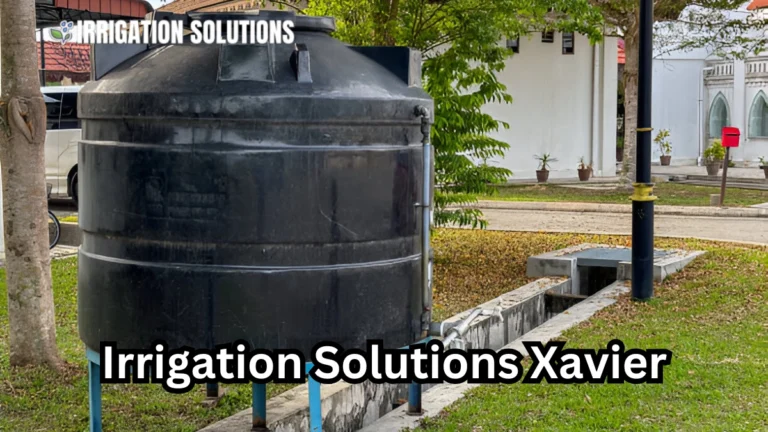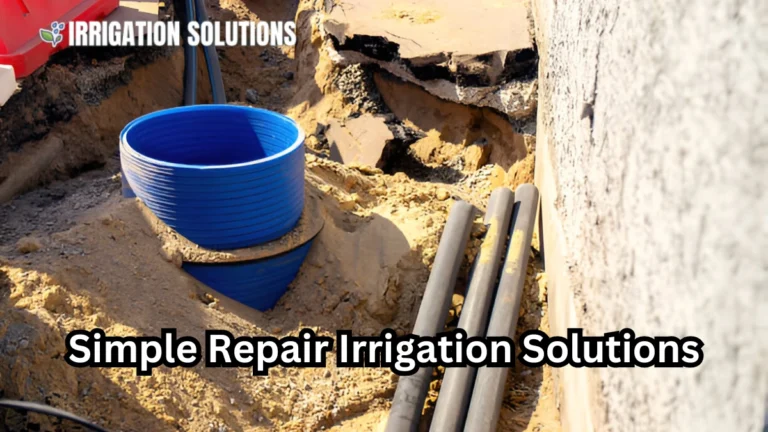top irrigation services orchards limited

irrigation services orchards limited plays a vital role in ensuring healthy tree growth, maximizing fruit production, and optimizing water usage. As climate conditions fluctuate and water resources become increasingly valuable, efficient irrigation services are becoming more critical for orchard owners. Whether you’re managing a small orchard or a large-scale commercial one, understanding the types of irrigation systems, maintenance, and water management strategies can greatly enhance your orchard’s success.
In this guide, we’ll cover the essential aspects of irrigation services for orchards, including types of irrigation systems, best practices for water management, common challenges faced by orchard owners, and how professional irrigation services can improve efficiency and yield.
The Importance of irrigation services orchards limited
Irrigation is the backbone of orchard management. Fruit trees, just like any other plants, require a steady supply of water to thrive. However, improper irrigation can lead to a variety of problems like water wastage, root rot, and poor fruit production. Efficient irrigation, on the other hand, ensures that trees get the right amount of water at the right time, improving plant health and crop yield.
Here are some reasons why irrigation services are crucial for orchards:
- Optimal Growth: Orchards, particularly fruit-bearing trees, need consistent moisture for proper development. Without sufficient water, trees can suffer from drought stress, leading to reduced fruit yield and poor quality.
- Resource Conservation: Water is a precious resource. An efficient irrigation system helps conserve water by delivering the right amount to each tree, preventing wastage.
- Better Fruit Quality: Proper watering practices help maintain a balanced growth environment, leading to healthier fruits with better taste, color, and texture.
- Reduced Disease Risk: Overwatering or underwatering can lead to fungal growth and pest infestations. An optimized irrigation system minimizes these risks, keeping your orchard healthy.
Types of irrigation services orchards limited
There are several types of irrigation systems that orchard owners can choose from. The choice of system depends on factors such as the size of the orchard, soil type, water availability, and climate conditions. Here’s a breakdown of the most commonly used irrigation systems:
Drip Irrigation
Drip irrigation is one of the most efficient irrigation methods for orchards. It involves the slow and steady release of water directly to the tree’s root zone through a network of tubes and emitters. This method minimizes water wastage by delivering water precisely where it’s needed.
Advantages of Drip Irrigation:
- Water efficiency: Reduces water loss through evaporation or runoff.
- Soil conservation: Keeps the topsoil intact while watering the roots directly.
- Reduced weed growth: Only the root zone receives water, discouraging weed growth.
When to Use Drip Irrigation:
Drip irrigation is ideal for orchards with well-drained soil and areas with limited water resources. It’s especially useful for tree crops such as apples, citrus, and avocados.
Sprinkler Irrigation
Sprinkler irrigation systems use a network of pipes and sprinklers to distribute water over the entire orchard. Water is sprayed in a way that mimics natural rainfall, reaching all parts of the trees.
Advantages of Sprinkler Irrigation:
- Coverage: Sprinkles water over a large area, providing uniform moisture distribution.
- Versatility: Can be used for different types of crops and orchard sizes.
- Simplicity: Easy to install and maintain.
When to Use Sprinkler Irrigation:
Sprinkler irrigation works well in areas with high humidity, sandy soils, and when frost protection is necessary.
Flood Irrigation
Flood irrigation involves flooding the entire orchard with water, allowing it to seep into the soil. While this method is simple and inexpensive, it’s not the most efficient way to water an orchard.
Advantages of Flood Irrigation:
- Low cost: It’s one of the cheapest methods to install and operate.
- Minimal maintenance: Flood systems require less upkeep compared to other systems.
When to Use Flood Irrigation:
Flood irrigation is suitable for orchards with large, flat areas and sufficient water availability. However, it’s not ideal for water-scarce regions due to its inefficiency.
Micro Irrigation
Micro-irrigation uses tiny tubes, emitters, or micro-sprinklers to deliver water in small quantities to specific parts of the orchard. It’s a more localized version of drip irrigation, designed to minimize water wastage.
Advantages of Micro Irrigation:
- Precision: Provides water directly to the root zone.
- Water efficiency: Uses less water compared to flood and sprinkler systems.
When to Use Micro Irrigation:
Micro irrigation is best for smaller orchards or areas with limited water resources. It’s also ideal for high-value fruit crops that require precise water control.
Best Practices for Water Management in irrigation services orchards limited
Water management in orchards isn’t just about setting up an irrigation system; it’s about understanding when and how much to water to ensure optimal growth. Here are some best practices to follow:
1. Understand the Water Needs of Your Trees
Each type of fruit tree has different water requirements. For example, apple trees require deep but less frequent watering, while citrus trees prefer more frequent shallow watering. To optimize irrigation, it’s essential to understand the specific needs of the trees in your orchard.
2. Monitor Soil Moisture
Using soil moisture sensors can help you track the water content in the soil and adjust irrigation schedules accordingly. Overwatering and underwatering are common problems, but they can be easily avoided with proper monitoring.
3. Time Your Irrigation Wisely
Watering early in the morning or late in the evening minimizes water evaporation, ensuring that the trees get the maximum benefit from the irrigation system. Avoid watering during the hottest part of the day, as much of the water will be lost to evaporation.
4. Check for System Leaks and Clogs Regularly
Regular maintenance of your irrigation system is crucial. Leaks and clogs can waste water and reduce the effectiveness of the system. Checking your system periodically for issues can help maintain efficiency.
5. Use Mulch to Retain Moisture
Applying mulch around the base of trees helps conserve soil moisture and reduce evaporation. It also prevents weed growth, which can compete for water.
Common Challenges in irrigation services orchards limited
Despite the many benefits of irrigation services, orchard owners often face challenges related to water management. Here are a few common issues:
1. Water Scarcity
As global water resources become more strained, water scarcity is a growing concern for orchard owners. This is especially true in regions that rely heavily on irrigation for agriculture. In such cases, water conservation methods such as drip irrigation and rainwater harvesting can help mitigate the impact of water shortages.
2. Overwatering and Underwatering
Both overwatering and underwatering can harm fruit trees. Overwatering can lead to root rot, while underwatering causes drought stress, reducing fruit yield. Proper irrigation schedules and moisture monitoring are key to avoiding these issues.
3. Soil Salinity
In areas with high evaporation rates, the salts in the water can build up in the soil, leading to soil salinity. This can stunt plant growth and affect fruit quality. Flushing the soil with water and adjusting irrigation practices can help reduce salinity buildup.
The Role of Professional Irrigation Services for Orchards
When it comes to managing large orchards, professional irrigation services play a crucial role. These experts offer a range of services that can help ensure the optimal health of your orchard and increase overall yield.
Design and Installation of Irrigation Systems
A professional irrigation service will assess your orchard’s specific needs and design an efficient irrigation system tailored to your soil type, crop requirements, and water availability. They can help you select the best system (drip, sprinkler, micro-irrigation) and install it properly for long lasting performance.
System Maintenance and Upkeep
Irrigation systems require regular maintenance to ensure they are working efficiently. A professional service will conduct routine inspections to check for leaks, clogs, or other issues. Regular system maintenance prevents costly repairs and ensures consistent water delivery.
Water Management Consultation
Professional irrigation services provide valuable insights on water management. They can help you optimize watering schedules, monitor soil moisture, and even introduce smart irrigation technologies that help conserve water while maximizing crop yield.
Troubleshooting and Repairs
When problems arise, having a professional irrigation service to turn to can save time and money. Experts can quickly diagnose issues with the system and provide solutions to minimize downtime.
Conclusion
Irrigation services are critical to the success of any orchard. From optimizing water use to ensuring that trees receive adequate nourishment for growth, an efficient irrigation system can boost fruit yield and quality. Whether you’re installing a new system or maintaining an existing one, understanding the various irrigation methods and best practices for water management is essential.
Choosing the right irrigation system, staying on top of regular maintenance, and working with professional irrigation services can help ensure your orchard thrives, even in the face of challenges like water scarcity and fluctuating climate conditions. With the right approach, you’ll not only conserve water but also maximize your orchard’s potential.






